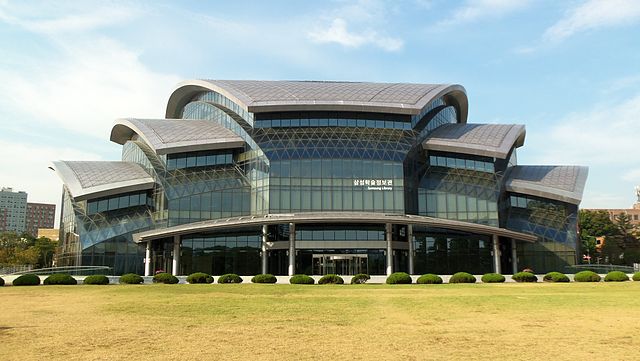SUNGKYUNKWAN UNIVERSITY: Kacelab, a Startup Company by Faculty Member, Promotes the Commercialization of AI Automatic Sterilization Robots
Tae Yong Kuc, a professor in College of Electronic and Electrical Engineering and CEO of Kacelab, has completed the design and development of premium anti-disinfection product using robot technology, and is in the process of getting an overseas certificate, and received a lot of attention at DENTEX 2021, held at SETEC on April 17.
This product developed a new quarantine robot that overcame the limitations of existing UV sterilization robots (manual sterilization method) and introduced an advanced concept of air sterilization using indirect ultraviolet light in human environments and active sterilization which maximize sterilization through direct UV in empty space. In addition, AI-based object recognition function, route discovery and avoidance driving, voice-based action guidance, user-friendly next generation interface, and application of TiO2 photocatalytic method are sufficiently competitive in the domestic and global markets. It has been developed by reflecting all the needs of the market for life prevention through miniaturization and securing price competitiveness.
Various UVC quarantine robots on the market, such as low-quality Chinese products and expensive domestic and European imported products, are not being used properly even though they are good solutions due to their high costs and size and weight that do not fit in the field.
In the second half of 2021, it will start selling it to multi-use facilities such as nursing hospitals, rehabilitation centers, postpartum care centers, and hotels in addition to medical institutions. Moreover, business consultations for overseas exports through state-funded policy projects are also under way, and pre-orders for domestic product sales are currently being received.
CEO Tae Yong Kuc (Professor) said “We expect to meet the needs of patients, medical staffs, and healthcare consumers for infection control, which has been further enhanced by the COVID-19 outbreak.”

